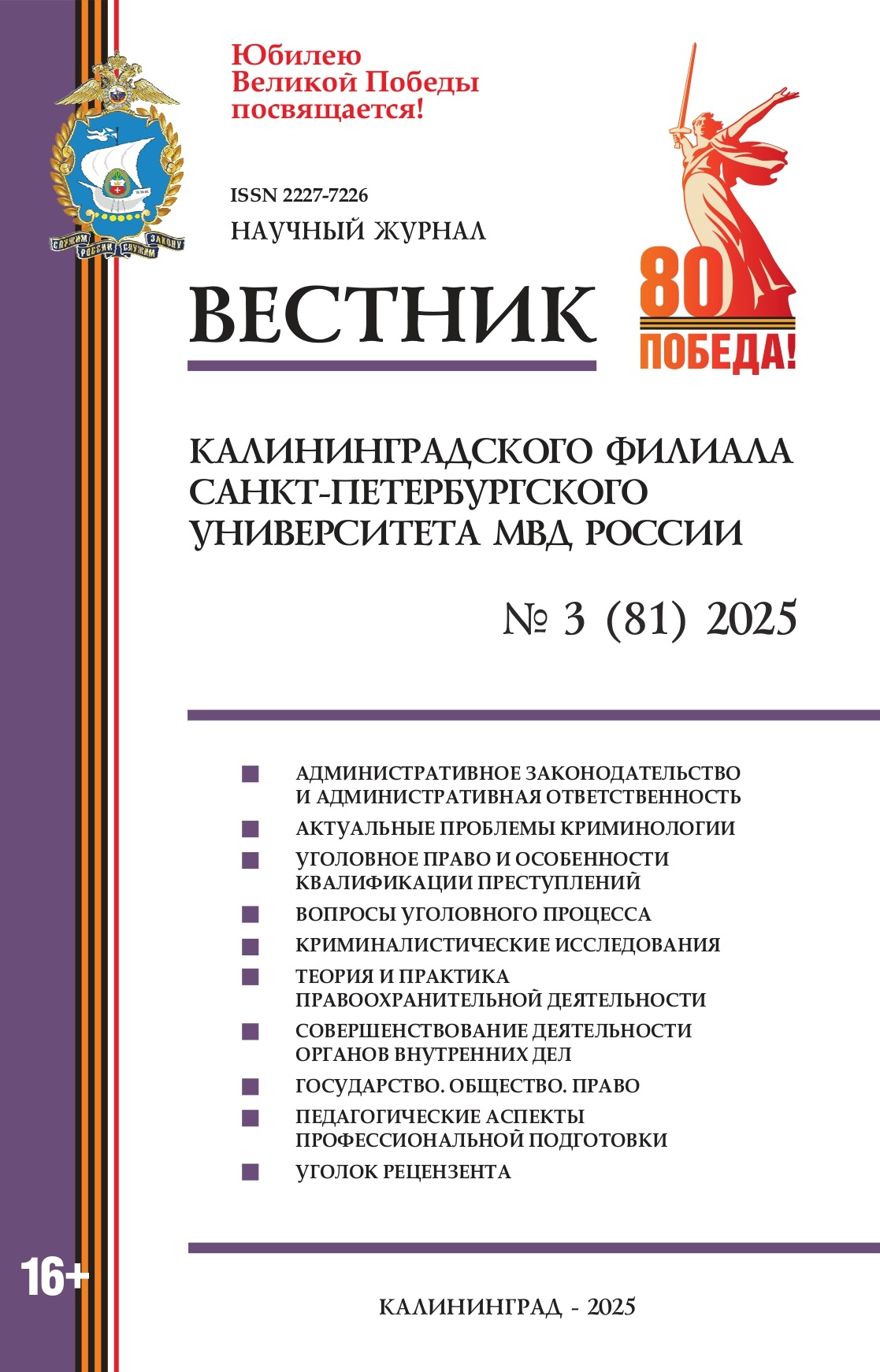Gurievsk, Kalinigrad, Russian Federation
Introduction. The institution of citizens' assistance to bodies carrying out operational investigative activities is a key element of national security in the context of an increasingly complex crime situation. Citizens' assistance is considered as a system of legal relations between citizens and authorized bodies, based on voluntariness and aimed at protecting rights and freedoms, property and public safety. Methods. The methodological basis of the study, the results of which are presented in the article, is the dialectical method of cognition. To study the institution of citizens' assistance to bodies carrying out operational investigative activities, the following were used: formal-legal method – in the analysis of regulatory legal acts at the constitutional, federal and departmental levels; systemic-structural analysis – to identify the internal structure and interrelations of forms of interaction between citizens and the bodies they assist; classification method – to systematize the types of assistance; sociological method – to assess the social conditioning of the institution under study. Results. The article examines the legal framework for the institution of citizen assistance to bodies implementing operational investigative activities at the constitutional, federal and departmental levels, as well as the principles of its functioning: voluntariness, legality, confidentiality, and social security. The article classifies the types of assistance: paid and gratuitous, overt and covert, permanent and episodic, specialized and universal. The article describes the forms of practical interaction: informational, advisory, technical, and personal participation of citizens. The article reveals the criteria for the subject composition of interaction participants and the system of guarantees of their rights: legal, organizational, material, and social. The article analyzes the problems of legal regulation of citizen assistance to bodies implementing operational investigative activities. These include the lack of a clear definition of the concept, contradictions in regulatory acts, and insufficient mechanisms for protecting participants. The article highlights the social functions of the institution under consideration: preventive, compensatory, integrative, and democratic. The ways of improving the legislation in the studied area are presented, it is proposed to implement modern technologies in the processes of interaction of the bodies carrying out operational investigative activities with civil society.
Institute of citizens' assistance, operational investigative activities, principles of voluntariness and legality, system of rights guarantees, preventive function of assistance, social security, legal regulation








